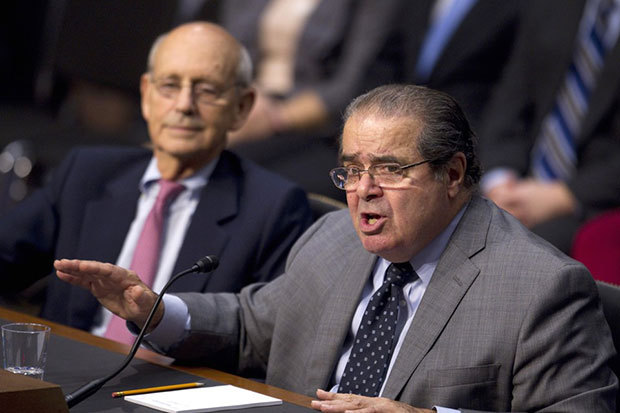What Will Become of Public-Sector Unions Now?

With the death of Supreme Court Justice Antonin Scalia, organized labor may be spared—for a little while.
Charlotte Garden
Over his 30 years on the Court, Antonin Scalia’s name became synonymous with conservative jurisprudence, and especially with the school of thought that calls upon judges to seek the original meaning of constitutional provisions. But Scalia’s principles could also lead him to some surprising results: On contentious issues such as whether the First Amendment protects flag burning, whether criminal defendants have a right to confront witnesses against them, and what sorts of police searches are “reasonable,” Scalia would sometimes break ranks with other conservative justices.
For that reason, progressives were pinning their hopes on Scalia to play the role of unlikely savior in one of the term’s most contentious cases: Friedrichs v. California Teachers Association. (While often the swing vote, Justice Kennedy’s comments during oral argument in a similar case two years ago indicated he was likely to vote against the union.) A ruling against the state and union defendants would be a major blow, perhaps the most significant one in a decades-long conservative effort to defund America’s public-sector labor unions by reversing Abood v. Detroit Board of Education, a 1977 decision which held that public-sector employees could be required to pay a so-called fair-share fee to the union that represents them. While no one would call him a great friend of organized labor, Scalia was the most likely swing vote in Friedrichs; Court-watchers saw his prior opinions as an endorsement of the union’s position. But Scalia had also characterized mandatory union fees as an “undeniably unusual” “tax” levied on public employees by private unions in a 2007 case, so his vote was no sure thing.
For the full article, click on the link below.
[Source]: The Atlantic


